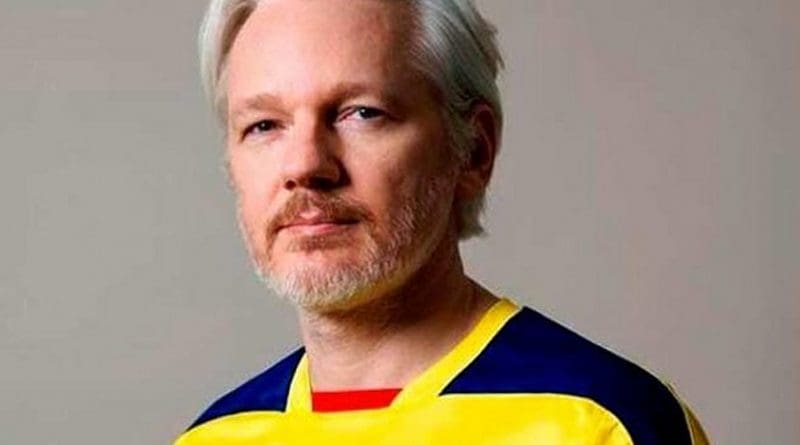Assange: From Trump Cheers To US Criminal Charges
By VOA
By Ken Bredemeier
Less than a month before Donald Trump was elected as the U.S. president in 2016, he said, “WikiLeaks, I love WikiLeaks,” as the anti-secrecy group released another cache of emails hacked by Russian operatives from the computers of Democratic officials that were damaging to Trump’s opponent, Hillary Clinton.
“Boy, I love reading those WikiLeaks,” Trump said four days before the election.
But on Thursday, the Justice Department that is part of Trump’s administration accused WikiLeaks founder Julian Assange of conspiring in 2010 with former U.S. Army intelligence analyst Chelsea Manning to disclose hundreds of thousands of confidential military records from the U.S. wars in Afghanistan and Iraq and 250,000 secret State Department cables.
Assange was arrested by British police in London Thursday, and unceremoniously hauled out of the Ecuadorian embassy where he had been living in asylum for nearly seven years. It was an arrest British authorities said was at the behest of the United States, which wants to put him on trial on the computer hacking charge, and possibly other allegations.
The actions of the 47-year-old Assange, the one-time Australian hacker using his genius IQ to tap into the databases of high-profile organizations, have often been met with such conflicting assessments. Depending on what he has been disclosing over the last decade, he has been hailed as a champion of truth or vilified as a publicity seeker endangering lives of people by disclosing confidential information.
Assange started WikiLeaks in 2006, but his first worldwide notoriety occurred four years later, with the release of the first documents Manning stole from U.S. government computers, with what U.S. prosecutors say was Assange’s help to Manning to crack a password and gain access to the files.
Some of the video footage WikiLeaks released captured the world’s attention, showing U.S. soldiers killing 18 Iraqi civilians from a helicopter.
In May 2012, the British Supreme Court ruled he should be extradited to Sweden to face allegations of sexual assault, accusations Assange has long denied and said were the result of consensual sexual relations with two women.
A month later, he took refuge in the Ecuadorian embassy, with the Quito government granting him asylum there.
Sweden eventually dropped the assault investigation, but Assange remained at the embassy, fearing that if he walked out Britain, would detain and then extradite him to the U.S., which is what the U.S. is now trying to do. Britain had charged him with failing to surrender to a court in 2012 and said if he left the embassy, he would be arrested.
Ecuador also grew weary of Assange’s behavior at the diplomatic mission and his role in the disclosures of more documents, especially insider files from the Vatican released earlier this year, and granted British authorities the right to enter its compound on Thursday after he had spent nearly seven years there.
Plainclothes officers grabbed Assange as he shouted in protest, “UK must resist!” and hustled him into a waiting police van.
In parliament, to a round of cheers, British Prime Minister Theresa May said of Assange’s arrest, “No one is above the law.”
Assange’s lawyers say he will fight extradition to the U.S.
Assange’s U.S.-based attorney, Barry Pollack, criticized the Justice Department charges, saying they were “an unprecedented effort by the United States seeking to extradite a foreign journalist to face criminal charges for publishing truthful information.”

